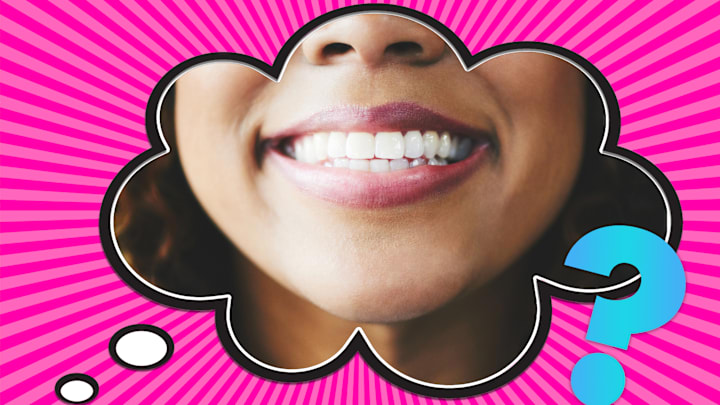Snails have thousands of teeth. Platypuses, on the other hand, don’t have any. Humans fall somewhere between those two animals—and much closer to the platypus’s end of the spectrum.
But exactly how many teeth do we have? There’s a good chance you could answer the question for yourself just by counting your own gnashers. As Live Science reports, an adult human typically has 32 teeth if they never got their wisdom teeth removed, and 28 if they did.
Our pearly whites are split into categories based on position, shape, and function. Front and center are the eight incisors—four on the top and four on the bottom—which help us bite and speak. Next to each outermost incisor is a cuspid or canine tooth, the four of which are especially pointy and great for tearing through tougher foods. Then come eight premolars, also known as bicuspids, which aid your eight molars with all the chewing. The four wisdom teeth, sometimes called “third molars” are at the very back.
That 32-tooth lineup doesn’t match perfectly with the baby version. We’re born with only 20 baby teeth: eight incisors, four canines, and eight molars. And if you can remember your own run-ins with the Tooth Fairy—or you’ve witnessed a kid lose their teeth recently—you might recall that the incisors often fall out first, usually sometime between ages 6 and 8. Molars generally fall out before we hit our teens.

That said, every person’s dental trajectory is a little different, and not every single adult has 28 or 32 teeth. As Colgate explains, some teeth fall victim to decay, reflux-related erosion, or other conditions. Tooth agenesis is a rare genetic disorder wherein some teeth are simply missing. Other people have extra chompers, known as supernumerary teeth.
But no matter how many teeth are in your mouth, you should be diligent about brushing them (the correct way). Here's what would happen if you didn’t.
[h/t Live Science]
